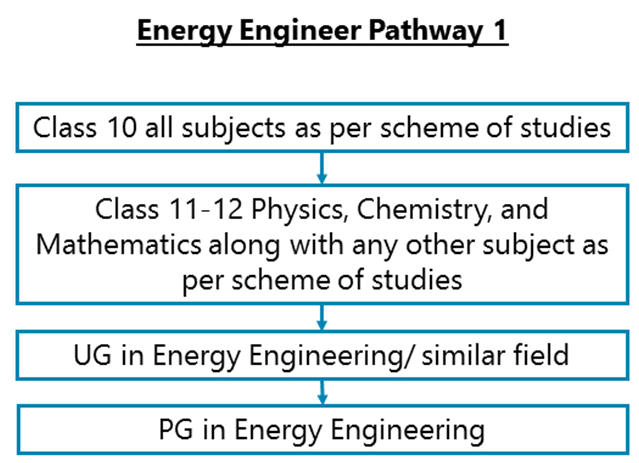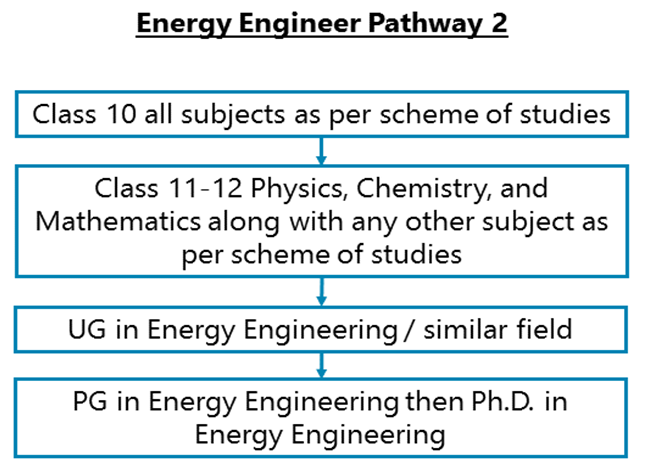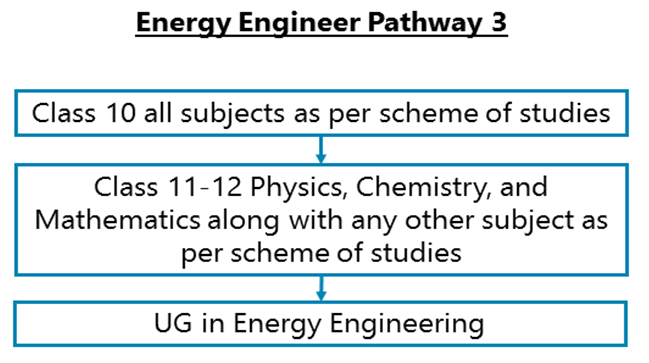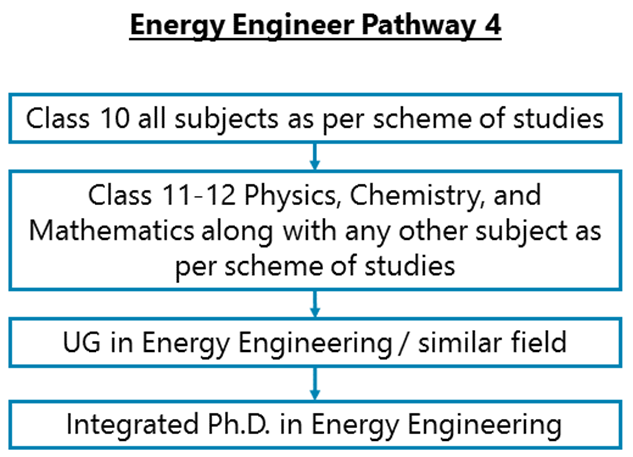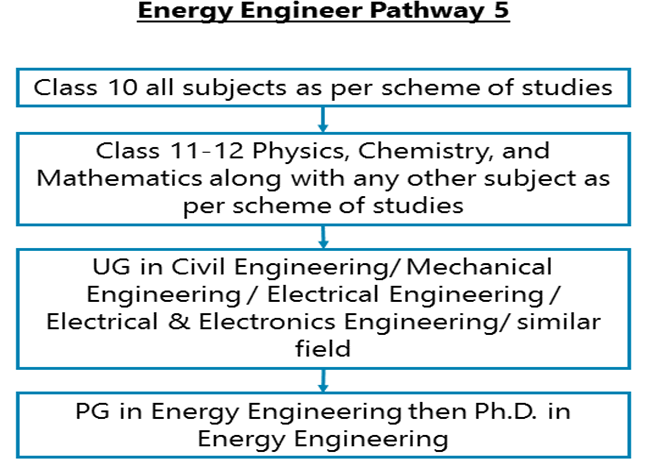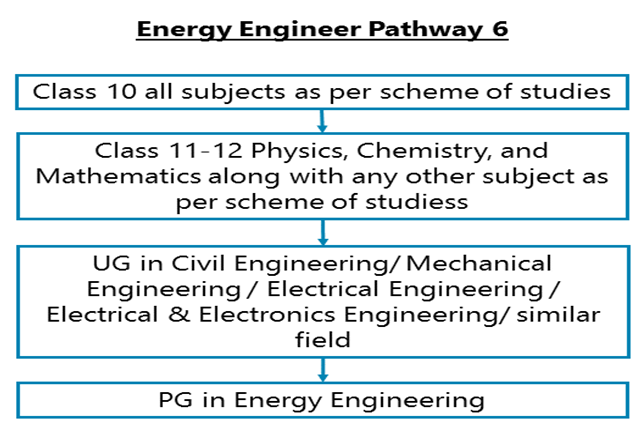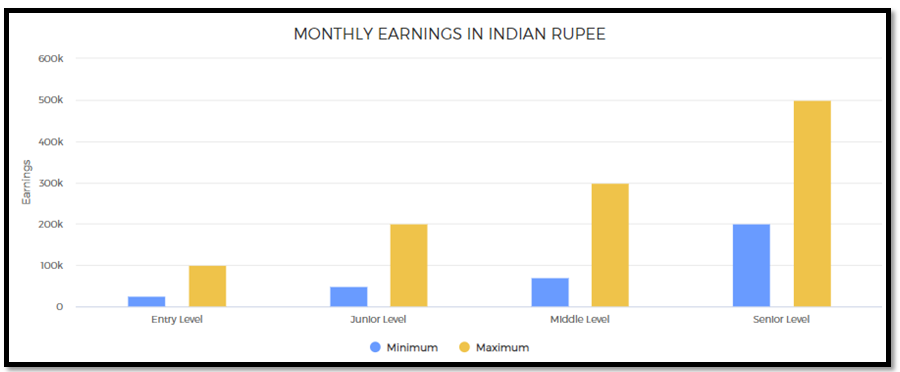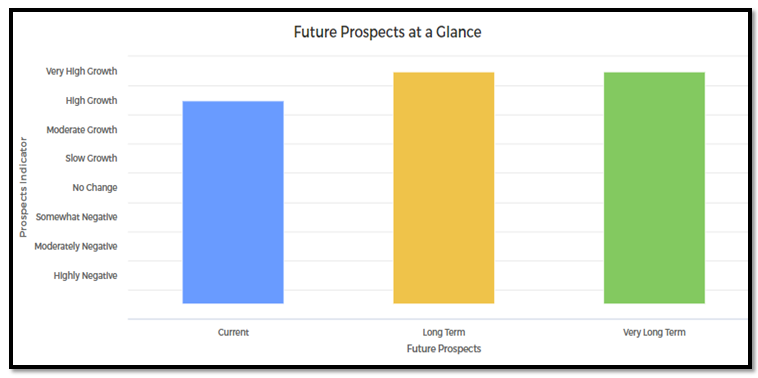Energy Engineer
Entry Level Qualification
12
Career Fields
Engineering & Technology
For Specially Abled







Career Entrance Exam
COMEDK, JEE MAIN BE/BTECH, JEE ADVANCED, GATE, BITSAT UG, VITEEE BE/BTECH, VITEEE ME/MTECH, SRMJEEE BE/BTECH, SRMJEEE ME/MTECH, TANCET MTECH/MARCH
About Career
Energy Engineers are the engineers who specialise in the field of energy efficiency, energy production, energy management, energy equipment, energy generation, etc. As an energy engineer, you also work to ensure total environmental compliance and works with different kinds of alternative energy sources.
an energy engineer, some of you will work in the energy generation function. Here you will work on the installation of energy equipment, power generation, compliance with environmental laws. Etc. Some of you will work on the manufacturing and construction of energy equipment and technology side. Here, you will develop new technologies to produce energy; you will improve existing technologies, you will manufacture equipment and machinery.
As an Energy Engineer, you could be working with a conventional energy source like coal and, petroleum and natural gas, or you may be working with new renewable energy sources like Solar, wind, nuclear, water, biomass, etc.
Key roles and responsibilities
As an Energy Engineer, depending on your field of specialisation, you would have the following roles and responsibilities:
1. You will work on new technologies to produce greener energies. At the same time, you will also be working on new equipment and machinery for the same purpose.
2. You will work to identify and recommend energy saving methods to achieve the target of greener energy production.
3. You will conduct energy audits to evaluate the use of energy. You will also work to identify the key points where energy can be conserved and how can it be done.
4. You will monitor the consumption of energy and analyse all methods to control energy consumption.
5. You will install energy production machinery and equipment like solar panels, windmills, etc.
6. You will work on the sustainable design of electrical and electronic daily systems like AC, Washing machine, Refrigerator, etc.
Career Entry Pathway
Class 10 all subjects as per scheme of studies – Class 11-12 Physics, Chemistry, and Mathematics along with any other subject as per scheme of studies – UG in Energy Engineering/ similar field – PG in Energy Engineering
After your Class 11-12 Physics, Chemistry, and Mathematics along with any other subject as per scheme of studies and then study for an undergraduate degree in Energy Engineering / similar field followed by a master’s degree in Energy Engineering.
Class 10 all subjects as per scheme of studies – Class 11-12 Physics, Chemistry, and Mathematics along with any other subject as per scheme of studies – UG in Energy Engineering / similar field – PG in Energy Engineering – Ph.D. in Energy Engineering
After your Class 11-12 Physics, Chemistry, and Mathematics along with any other subject as per scheme of studies and then study for an undergraduate degree in Energy Engineering / similar field, followed by a master’s degree in Energy Engineering. Further, you can take Energy Engineering in Ph.D. and complete the doctoral degree.
Class 10 all subjects as per scheme of studies – Class 11-12 Physics, Chemistry, and Mathematics along with any other subject as per scheme of studies – UG in Energy Engineering
After your Class 11-12 Physics, Chemistry, and Mathematics along with any other subject as per scheme of studies and then study for an undergraduate degree in Energy Engineering.
Class 10 all subjects as per scheme of studies – Class 11-12 Physics, Chemistry, and Mathematics along with any other subject as per scheme of studies – UG in Energy Engineering / similar field – Integrated Ph.D. in Energy Engineering
After your Class 11-12 Physics, Chemistry, and Mathematics along with any other subject as per scheme of studies and then study for an undergraduate degree in Energy Engineering / similar field. Following the B.E./B.Tech. Degree, you can study for Integrated Ph.D. in Energy Engineering.
Class 10 all subjects as per scheme of studies – Class 11-12 Physics, Chemistry, and Mathematics along with any other subject as per scheme of studies – UG in Civil Engineering/ Mechanical Engineering / Electrical Engineering / Electrical & Electronics Engineering/ similar field – PG in Energy Engineering – Ph.D. in Energy Engineering
After your Class 11-12 Physics, Chemistry, and Mathematics along with any other subject as per scheme of studies then study for an undergraduate degree in Civil Engineering/ Mechanical Engineering / Electrical Engineering / Electrical & Electronics Engineering/ similar field, followed by a master’s degree in Energy Engineering. Further, you can take Energy Engineering in Ph.D. and complete the doctoral degree.
Class 10 all subjects as per scheme of studies – Class 11-12 Physics, Chemistry, and Mathematics along with any other subject as per scheme of studies – UG in Civil Engineering/ Mechanical Engineering / Electrical Engineering / Electrical & Electronics Engineering/ similar field – PG in Energy Engineering
After your Class 11-12 Physics, Chemistry, and Mathematics along with any other subject as per scheme of studies then study for an undergraduate degree in Civil Engineering/ Mechanical Engineering / Electrical Engineering / Electrical & Electronics Engineering/ similar field followed by a master’s degree in Energy Engineering.
Required Qualification & Competencies
Undergraduate studies after school
1. To become an Energy Engineer, you should complete your schooling with Physics, Chemistry, and Mathematics and join for an undergraduate course of B.E. or B.Tech. in Energy Engineering.
2. Alternatively, you can also study Civil Engineering / Electrical Engineering / Electrical & Electronics Engineering/ similar field.
Post Graduate Studies
1. After finishing B.E. or B.Tech., you can take an M.E. or M.Tech. course in India or Foreign University. There are many specialisations in M.E. and M.Tech. Energy Engineering, Nuclear Engineering, Power Engineering, Renewable Energy Technology, Solar Engineering, Wind Energy Engineering, etc.
2. You can go for further studies by choosing to complete a Ph.D. in Energy Engineering after M.E. or M.Tech.
MINIMUM EDUCATION REQUIRED | MAXIMUM EDUCATION REQUIRED |
Under Graduate | Doctoral |
COMPETENCIES REQUIRED
You should have the following occupational interests:
1. Investigative: You should have interests for Investigative Occupations. Investigative occupations involve working with ideas and quite a lot of thinking, often abstract or conceptual thinking. These involve learning about facts and figures; involve the use of data analysis, assessment of situations, decision making and problem-solving.
2. Realistic: You should have interests for Realistic Occupations. Realistic occupations involve more practical and hands-on activities than paperwork or office work. Realistic occupations often involve physical activities for getting things done using various tools and equipment.
Following personality attributes are required:
1. You are always or mostly organised in your day-to-day life and activities.
2. You are always or mostly disciplined in your action and behaviour.
3. You are always practical or in most situations.
4. You are always or mostly care about your actions and behaviour.
You should have the following skills and knowledge:
1. Reading Comprehension: Skills in understanding written sentences and paragraphs in work related documents.
2. Critical Thinking: Skills in the analysis of complex situations, using logic and reasoning to understand the situations and take appropriate actions or make interpretations and inferences.
3. Problem Solving: Skills in analysis and understanding of problems, evaluating various options to solve the problems and using the best option to solve the problems.
4. Active Listening: Giving full attention to what other people are saying, understanding the points being made by others, asking questions, etc.
5. Supervising: Skills in Supervising and monitoring the performance of others, businesses, and different projects.
6. Engineering & Technology: Knowledge of various applications of one or more branches of Engineering Science & Technology to manufacture and produce various goods or construct or erect various structures. This includes knowledge of design, development, prototype testing, manufacturing, construction, installation, repair, and maintenance.
7. Mathematics: Knowledge of arithmetic, algebra, geometry, calculus, trigonometry, statistics, and other mathematical disciplines and their applications.
You should have the following aptitudes and abilities:
1. Inductive Reasoning - The ability to combine pieces of information from various sources, concepts, and theories to form general rules or conclusions. For example, analysing various events or situations to come out with a set of rules or conclusions.
2. Problem Sensitivity: The ability to tell when something is wrong or is likely to go wrong. It does not involve solving the problem, only recognizing there is a problem.
3. Deductive Reasoning: The ability to apply general rules and common logic to specific problems to produce answers that are logical and make sense. For example, understanding the reasons behind an event or a situation using general rules and common logic.
4. Information Ordering: The ability to arrange things or actions in a certain order or pattern according to a specific rule or set of rules (e.g., patterns of numbers, letters, words, pictures, mathematical operations).
5. Oral Comprehension: The ability to listen to and understand information and ideas presented through spoken words and sentences.
Career - Job Opportunities & Profiles
At the entry level, you may join the following profiles of energy engineering:
1. In academics and research, after your doctorate degree in Energy Engineering, you can join as an Assistant Professor. Some colleges may take you as an Instructor after your post-graduation also. But to have a good career in academics and research, you must have a Ph.D.
2. Research institutes and nuclear and atomic research stations can hire you as a scientist with the lowest grade of “C.”
3. In Power Grid sector (government and private) you may join as Assistant Engineer in various departments.
4. In Solar, wind and other renewable energy sectors, you may join as a site engineer working on the installation sites.
5. You may join as the design engineer, in the designing side of the equipment and machinery.
6. You may join as the manufacturing engineer, in the development side of the equipment and machinery.
You can find job opportunities at the following facilities:
1. National and State level power grid companies like REC, Haryana Power utilities, RITES India, etc.
2. Solar, wind and hydel power energy equipment manufacturing companies.
3. Solar, wind, hydel, etc, installation companies.
4. Government defence department like DRDO in India.
5. Nuclear stations and atomic research stations like BARC in India.
6. The engineering department of all IITs and Engineering colleges.
Work Environment
As an energy engineer, you will be working most of the time in developing new designs, new equipment or new technologies. The work requires a lot of dedication, time, and focus. Most of the work and research will need patience as experiments and work tend to take time to deliver result.
CAREER GROWTH
1. If you join a private industry as a design engineer/ manufacturing engineer, then you will move to Design Engineer, Senior Design Engineer / Design Head Engineer and finally Vice President of Product Design.
2. The career growth in university and college states from Assistant Professor and then Associate Professor, Professor and Professor Emeritus. Professors can also get administrative positions such as Director/Dean/Vice Chancellor, etc
3. If you are hired as a research associate, then you will go on to become a Doctoral Research Fellow, then Post-Doctoral Research Fellow and then Scientist in Progressive Grades.
4. Research laboratories will hire you as a scientist/scientist officer with the lowest grade and the grade changes from low to high. In India, grades are “Scientist “C” as the joining level and then D, E, F, G, H, etc. A senior-level scientist can also get into administrative positions like Principal Scientist, Assistant Director, Deputy Director, Director, etc
5. If you are hired as an Assistant Engineer at the power grid, you might become Senior Engineer and then Deputy Manager (Engineering), etc.
6. If you join as a site engineer, you may become Senior Site Engineer, Planning Engineer, Project Manager, etc.
Salary Offered
1. At the entry level, you can join as a research associate with a basic salary of Rs. 25,000 to 30,000. As a doctoral research fellow (junior research fellow) you would be earning around Rs. 35,000 to 38,000 per month. At the entry level, as a Scientist (grade C) you would be earning around Rs. 80,000 to 100,000 per month. As an assistant professor, you would be earning anything between Rs. 65,000 to 70,000 per month. If you are working in the private sector, then you will join as a design engineer/manufacturing engineer and will earn anything between Rs. 15,000 to 1,00,000 per month. If you are into power grid companies, you might earn anything between Rs. 40,000 to 70,000 per month as an assistant engineer. All these salaries are inclusive of some allowances.
2. At the junior level with a work experience of 2-6 years, you would be earning anything between Rs. 50,000 to 2,00,000 per month.
3. At the middle level with an experience of 10-12 years, you would be earning anything between Rs. 70,000 to 1,90,000 per month as a scientist and Rs. 1,20,000 to 1,60,000 as a professor. If you are into private industries, then you would be earning anything between Rs. 80,000 to 3,00,000.
4. At the senior level of over 15 years of work experience, you would be earning anything between Rs. 1,60,000 to 2,00,000 per month as a professor and Rs. 2,10,000 to 2,50,000 per month as a Scientist. If you are into private industries when you would be earning anything between Rs. 2,00,000 INR to 5,00,000 or more per month.
MONTHLY EARNINGS IN INDIAN RUPEE
1. Entry level: 0 - 2 years of work experience
2. Junior Level: From 1 to 12 years of work experience
3. Mid Level: From 5 to 20+ years of work experience
4. Senior Level: From 10 to 25+ years of work experience (there could be exceptions in some high-end technical, financial, engineering, creative, management, sports, and other careers; also in the near future, people will reach these levels much faster in many careers and in some careers, these levels will have no meaning as those careers will be completely tech skill driven such as even now, there is almost no level in a Cyber Security Expert’s job).
Work Activities
As an Energy Engineer, you might be involved in various applied areas of energy and engineering. In these areas, you might be involved in different activities such as:
1. Using computers for work: Using computers for day-to-day office work; using computer software for various applications in day-to-day professional work; entering data and process information; for writing.
2. Analysis and interpretation of data and information: Analysis of data and information to find facts, trends, reasons behind situations, etc.; interpretation of data to aid in decision making.
3. Decision Making and problem-solving: Analysis of data and information; evaluation of alternative decisions and results of decisions; taking the right decisions and solving problems.
4. Getting information & learning: Observing, hearing, reading, using computers, or otherwise obtaining information and learning from it.
5. Communicating with co-workers and others: Communicating with people in writing, verbally or otherwise inside your workplace and various other people who have professional relationships with your place of work including vendors, government officials, etc. or with people at large.
Future Prospects
Power generation is one of the key indicators of a developed nation. India is strongly moving in that direction. No country can develop without power. While India depended on conventional power for decades, now as a country we are moving towards more renewable power generation methods like wind, solar and hydel energy. Between2000 to 2018, 3.14% of total FDI in India was in the power sector. Recently Indian initiated connecting each village of India with electricity.
In 2017, India started Inter-state wind power distribution. In 2018, India installed 1 MW of solar energy each hour. At present we have renewable energy installed of 73 GW, but our capacity is of 363 GW. While, India has the potential, last few years, we are also moving in this direction. Thus, it is a lucrative career for an energy engineer with different career prospect in the future.
FUTURE PROSPECTS AT A GLANCE


